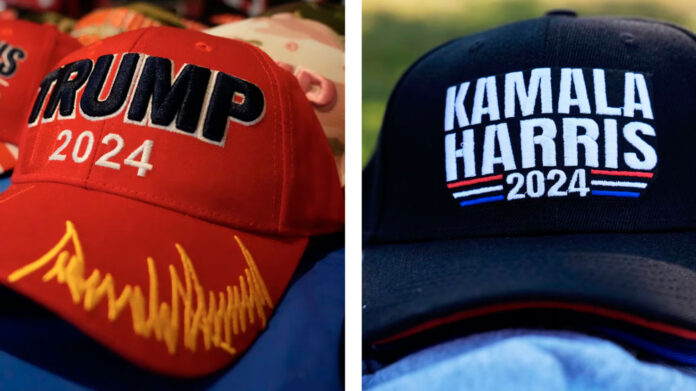
With the decisive victory of Donald J. Trump, who will assume the presidency on January 20, numerous political, sociological, cultural, and even psychological questions have emerged. Although the United States remains the world’s strongest economy and continues to grow, many argue that economic concerns played a central role in American voters’ decisions. The global economy has been impacted by the pandemic and conflicts instigated by Russia and Hamas, a reality that directly affects most people’s wallets. This context makes it relevant to highlight the massive sums spent on recent political campaigns.
According to figures from various research groups, the total spending in the recent U.S. election cycle reached a staggering $16 billion, surpassing the previous record of $14.6 billion spent in 2020 by about $1.6 billion. This sharp increase illustrates how the financial demands of running for office continue to grow, which in turn keeps many otherwise viable candidates out of the running, unable to gather six- or seven-figure funding.
With approximately 141 million citizens voting on Tuesday, the average cost per vote nationally amounts to $114. However, since Pennsylvania established itself as a «swing state» with the highest number of electoral votes—19—in this category, it has captured the attention of parties and interest groups like PACs and SuperPACs, becoming known as «the crown jewel» of battlegrounds. Leading up to the election, many remarked that “whoever wins Pennsylvania wins the presidency.”
As a result, campaign spending in Pennsylvania far exceeded the national average, reaching close to $1.2 billion, according to public estimates that cover spending on the presidential, Senate, House, and other high-profile races. This amounts to an average of $174 per vote—51% higher than the national average.
These rising costs reflect a lack of protections in the electoral system to limit the influence of money in politics. The Constitution sets a cap on individual contributions to campaigns, currently at around $3,300 per person. Yet, First Amendment protections, which view political spending as a form of “free speech,” have allowed the rise of PACs and SuperPACs, groups that can spend unlimited amounts supporting candidates independently.
Still, the true level of influence that money and advertising have on voter opinion isn’t always clear, especially given that the Democratic candidate vastly outpaced the Republican candidate in fundraising. According to Forbes, the Harris campaign raised over $997 million, while Trump’s campaign gathered $388 million. But even this huge advantage couldn’t prevent the decisive defeat that Democrats suffered.
Adding to these financial costs are the “emotional costs” of the campaign. Thousands of activists and volunteers worked tirelessly, striving to defend the nation against serious threats, alongside Republican figures who took political risks by publicly supporting Harris.
The results of this campaign will be analyzed in the coming months to uncover the real reasons why a majority of voters rejected the current administration and the Democratic campaign.
Time will reveal the additional costs faced by those who, likely due to misinformation or lack of information, voted against their own best interests. For Latinos, these costs may extend beyond the economic and could even prove more harmful than disagreements over funding for Ukraine or support for Israel. It’s essential to keep a broad perspective.
It remains to be seen what actions the MAGA movement and Republicans in power will take and what internal struggles may arise. For those with clear intentions of bringing Trumpism back to the presidency, questions emerge about the feasibility of their plans, but above all, about the morality of their actions, given the abundant evidence about who will be occupying the White House.
Beyond his past conduct, Trump’s recent simulation of a sexual act with a microphone should have alarmed his voters—particularly “conservatives” worried about issues like gender ideology and hypersexualization—that the now erratic president-elect appears further deteriorated. The nearly unchecked power he now holds could have dire, possibly irreversible consequences that we may all have to pay for.






